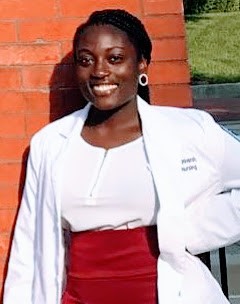By: Helena Addison
In the first hour of my OB clinical rotation, I held up a woman’s legs as she gave birth vaginally. The OB/GYN stood in front of her. She rolled her eyes, shook her head, and scolded, “Come on, you are still not pushing hard enough.” Then, “If you don’t push harder, I’m going to have to use a vacuum.”
By the woman’s third round of pushing with contractions, the baby was in the cardinal position of extension – his head was exposed. The baby would be here with just a couple more pushes. However the provider used a vacuum on the baby with the woman’s next push.
Using a vacuum creates a slightly higher risk of vaginal pain and tearing for the mom, and higher risk of scalp and head injuries (like wounds and nerve damage) for the infant. I reflected on this experience with my clinical instructor, who agreed that the use of the vacuum was likely unnecessary and shared that this OB/GYN “tends to be more impatient with ‘culturally different’ patients.” On my first day I witnessed abusive, disrespectful and unfortunately not uncommon behavior by an OB/GYN. I had just seen how racism could contribute to poor health outcomes, and as a Black woman it was frightening.
Black women are about three to four times more likely than white women to die because of childbirth. The disparity exists even when black women have quality health care access, have strong health literacy, are educated, and are of high socioeconomic status. Take Shalon Irving’s story. She had two master’s degrees and a dual-subject PhD, a good health insurance plan, and a strong social support system, but still died an untimely death due to postpartum complications.
It is difficult not see myself in her place as I work toward my advanced degrees. Unfortunately, as a Black woman, the letters behind my name and the length of my CV might not protect me from racism and implicit bias when I have a baby. Nurses must fight this. We must advocate for our patients’ right to respectful maternal care.
But the culture of some nursing units may inhibit a nurse’s ability to advocate. My clinical instructor indicated that many nurses on the unit knew that the OB/GYN I trained with is racist and impatient. Yet there is a hierarchy in the unit, so nurses often do not believe speaking up about their concerns will make a positive impact. I noticed this a couple weeks into my rotation. A nurse caring for a Black woman who had preeclampsia and was in labor left her patient’s room and said, “She said her headache is getting worse but there is no point in paging the doctor again because he won’t listen or do anything.”
My experience on the unit stirred each context of my life in a different way. As a nursing student, it is discouraging to work with nurses who are too disempowered to advocate for their patients. As a Black woman, I worry that I will not be respected or heard as a maternity patient when my time comes. As a Black nursing student, and eventually a Black nurse, it troubles me to think that when I advocate for a patient my colleagues may see me as less competent, more abrasive, more aggressive… just because I am Black. Regardless of the challenges my identity presents or the external complications I and other nurses run into (like a unit’s hierarchy), we must do everything possible to protect patients’ safety.
This blog is a part of the “Dialogues in Health Equity” series by the Health Equity Faculty Interest Group. They are committed to decreasing health disparities experienced by local and global communities by promoting social justice and health equity through nursing practice, research, education, and service.
Dialogues in Health Equity
ABOUT THE AUTHOR
 Helena Addison is currently a student in the MSN (Entry into Nursing)program, an executive board member of the Black Student Nurses Association, and a research co-coordinator on the Healthy Relationships Team led by Dr. Kamila Alexander. She plans to further her education by earning a DNP (Family Primary Care) and a PhD. Her interests include trauma, substance abuse, and health equity.
Helena Addison is currently a student in the MSN (Entry into Nursing)program, an executive board member of the Black Student Nurses Association, and a research co-coordinator on the Healthy Relationships Team led by Dr. Kamila Alexander. She plans to further her education by earning a DNP (Family Primary Care) and a PhD. Her interests include trauma, substance abuse, and health equity.
